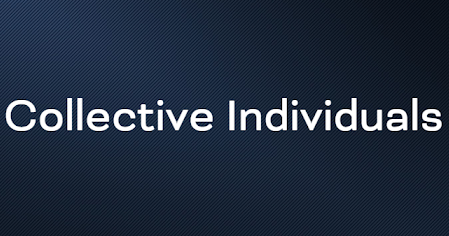Research Projects
Be a part of the growing number of students who participate in research!

By drawing on the Theory of Planned Behavior, this research intends to investigate the factors that influence consumers’ intention to buy from the brands that use realistic advertisements of women. Those factors include women’s demographics, psychographics, and social influence. Further, this research investigates the role that women’s age and civic consciousness play in shaping the strengths of the relationships among the determinants of behavioral intention (attitudes towards behavior, subjective norm, and perceived behavioral control). The findings of this research intends to fill the gap in advertising literature and inform companies of their advertising strategy.

Among the government-recommended hygiene protocols, mask-wearing is arguably the most effective preventive measure, yet little is known about consumers’ intention to wear a mask. To understand people’s willingness to wear a mask, this research uses a coffee shop as the venue about which we survey consumers to shed light on the factors that shape their intention to wear a mask while not actively eating or drinking while staying in a coffee shop. This project investigates the role that consumers’ espoused cultural values, civic consciousness, and the Theory of Planned Behavior play in shaping consumers’ response to wearing a mask when staying in a coffee shop.

This project investigates consumers’ preferences for the timing of sharing about consumer experiences, such as visiting theme parks, sports events, or vacationing, that might be influenced by the individualism-collectivism (INDCOL) dimension of the culture and the ensuing regulatory foci -- promotion-orientation versus prevention-orientation. This research contributes to international advertising and marketing literature by uncovering the role of self-construals on consumers’ sharing behaviors. It also intends to provide practitioners with relevant lessons to optimize their global social media strategy, enhance consumer engagement, and improve cross-cultural brand equity.

This project investigates how Hofstede’s six cultural dimensions influence consumers' usage of the seven functions of social media platforms (identity, conversation, sharing, presence, reputation, conversations, group). It will further investigate how individual consumers’ espoused cultural values influence consumers’ social media behaviors. To test the hypotheses, the team will survey consumers using a data collection tool. Team Collective Individuals hopes to contribute to the literature and provide insight on how to strategically market on social media based on consumers’ cultural values.

This project investigates how the state-of-origin of a product influences consumers' attitudes/purchase intentions and seeks to identify factors that moderate the impact of the product origin on the attitudes and purchase intentions. To this end, the team will design a scenario that varies on state-of-origin and argument strength and will collect data from two states. The results of the research introduces state-of-origin effect to the marketing and offers some practical implications to the state governments and marketing managers that are interested in locally-made products.

This research intends to assess the effectiveness of research participation by undergraduate business students in terms of the perceived value of research participation, helpfulness of research participation in learning marketing concepts, student’s attitudes towards participation, and their intention to participate in future studies. Further, the research will investigate the relative influence of students’ demographic, academic-related, and course-related factors on the said research participation effectiveness. The findings of the research should contribute to the pedagogy of marketing and business education, which will then provide practical implications to the faculty who teach marketing courses.
If you are interested in an independent research opportunity, contact Dr. Jung at jmjung@cpp.edu.
Students and Projects Dr. Jung Advised
- Kuchenbecker, Cailin (2018), “Moderating Role of Masculinity, Product Experience, and Advertising View Setting in the Effectiveness of Reversed Gender Advertising,” Advisor (Undergraduate Student).
- Jung, Jay (2017), “Impact of Consumers’ Espoused Cultural Values and Cognitive Styles on E-Commerce Website Usability Evaluation,” Advisor (Undergraduate Student).
- Ghieuw Sien, Raphael C. (2015), “The Effects of Self-Construal on Consumers' Preference for Interactions with Sales Associate,” Advisor (Undergraduate Student).
- Lindke, Christian (2014), “Watching TV in a Post-TV World: How Personal Involvement, Equifinality and Ad Avoidance Tendencies Affect a Viewer’s Willingness to Watch Advertisements,” (Committee Chair).
- Pantis, Tabitha (2013), “Marketing Plan and Feasibility Analysis for A Certificate in Marketing Research (CMR) Program,” (Committee Chair).
- Hadizadeh, Afife (2013), “Feasibility Study for A Master of Marketing Research (MMR) Degree Program: Using Data Collected from Undergraduate Student Population,” (Chair).
- Yazdani, Abtin (2013), “Feasibility Study for A Master of Marketing Research (MMR) Degree Program Using Data Collected from Alumni Population,” (Chair).
- Almarzouki, Wael (2013), “Business Plan for Patchi USA, LLC,” (Chair).
- Jogani, Dhara K. (2012), “Business Plan for Toyflix, LLC,” (Chair).
- Ong, Andil D. (2012), “Business Opportunity Research of a Recycling/E-commerce Company,” (Chair).
- Swami, Pratima (2011), “Business Plan for New Wave Marketing LLC,” (Chair).
- Wu, Ai (2011), “The Effects of Blog Endorsement on Attitudes and Purchase Intentions” (Chair).
- Epuru, Keerthi (2011), “Business Plan for Little Flowers Child Day Care Center,” (Chair).
- Hang Chu Hui (2011), “Why and How Individuals’ Arousal Tendency Influences Persuasion? The Role of Motivational State and Online Advertising Interactivity,” (Chair).
- Roberto Del Real (2011), “Business Plan for Glendora Sports Center, LLC,” (Chair).
- Andrew Reddish (2011), “Business Plan for Personal Training Service,” (Chair).
- Idemenko, Yuliya (2011), “The Effects of Self-Construals, Locus of Control and Situational Factors on Superstitious Beliefs and Decision Making of Consumers,” (Chair).
- Chen, Hong-Chin (2011), “A Study of Feasibility and Business Plan for a European Fusion Restaurant in Taiwan,” (Chair).
- Huang, Yu-Shan (2011), “A Business Plan for A Kitchenware Specialty Retail Store in Taiwan,” (Chair).
- Usman, Ayesha (2010), “Business Plan – Medaid Consulting,” (Chair).
- Yuen, Ki (2010), “Investigating Feasibility of a Drive-Through Grocery Store.” (Chair).
- Sirimitr, Kimmie (2010), “Consumers’ Attitude toward Negative Advertising: Is Negative Advertising More Effective than Neutral Advertising?” (Chair).
- Lee, Amy (2010), “The Influential Effects of User Review Sites on Restaurant Visitation Intention,” (Chair).
- Suh, Sarah (2010), “A Business Plan for Smart Mobile Solutions, Inc.,” (Chair).
- Cai, Liping (2010), “Consumers’ Attitude toward Hybrid Electric Vehicle,” (Chair).
- Mora, Shawn (2010), “The Effects of Green Advertising: Influence of Attitude and Purchase Intent on Multicultural Consumers,” California State University, Pomona. (Chair).
- Tsai, Shang-Fei (2010), “Resource Allocation to Improve Operational Efficiency of Costco Warehouses In Southern California,” California State University, Pomona. (Chair).
- Wang, Kan (2010), “Business Opportunity Research of Computer Science Tutoring Service for Children,” California State University, Pomona. (Chair).
- Porteous, Erica J. (2010), “Aligning Employee Objectives with Organizational Strategic Goals at the Front Line-To-Mid-Management Level,” California State University, Pomona. (Chair).
- Karen Fleming (2010), “A Study to Analyze Consumer Opinion of Corporate Social Responsibility,” California State University, Pomona. (Chair).
- Asuncion, Fulgene (2010), “A Study to Analyze The Barriers to Successful Implementation of Public Private Partnerships For Transportation Projects,” California State University, Pomona. (Chair).
- Wong, Anson (2010), “Motivating Factors between Employee Types,” California State University, Pomona. (Chair).
- Ghosn, Maha (2009), “Marketing Strategies and Individual Differences within a given Culture: New Implications on Consideration Set and Consumer Decision Processes,” California State University, Pomona. (Chair).
